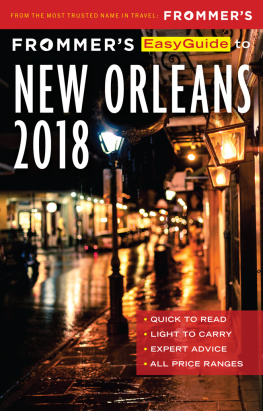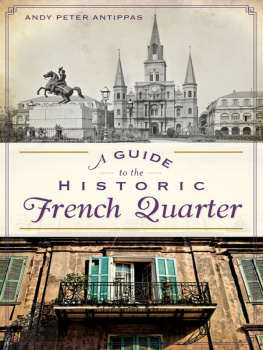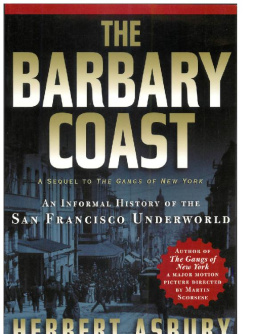

This edition is published by PICKLE PARTNERS PUBLISHINGwww.pp-publishing.com
To join our mailing list for new titles or for issues with our bookspicklepublishing@gmail.com
Or on Facebook
Text originally published in 1936 under the same title.
Pickle Partners Publishing 2016, all rights reserved. No part of this publication may be reproduced, stored in a retrieval system or transmitted by any means, electrical, mechanical or otherwise without the written permission of the copyright holder.
Publishers Note
Although in most cases we have retained the Authors original spelling and grammar to authentically reproduce the work of the Author and the original intent of such material, some additional notes and clarifications have been added for the modern readers benefit.
We have also made every effort to include all maps and illustrations of the original edition the limitations of formatting do not allow of including larger maps, we will upload as many of these maps as possible.
THE FRENCH QUARTER:
AN INFORMAL HISTORY OF THE NEW ORLEANS UNDERWORLD
BY
HERBERT ASBURY
TABLE OF CONTENTS
Contents
DEDICATION
TO HELEN
AUTHORS NOTE
FOR ASSISTANCE in gathering material for this book I am greatly indebted to many residents of New Orleans, among them Robert J. Usher of the Howard Library, Mrs. E. D. Friederichs of the City Archives, Faser Wood, Robert G. Polack, J. S. W. Harmanson, Casey Jones, Albert Goldstein, Lyle Saxon, Captain Harvey O. Gregson of the Police Department, Charles J. Ferrier, George Healey, Jr., Gwen Bristow, Bruce Manning, Meigs O. Frost, and John McClure.
I am especially grateful to Roark and Mary Rose Bradford, and to James K. and Dorothy Feibleman, for many kindnesses; and to the publishers of the Times-Picayune for placing at my disposal the files of the Times , the Picayune , the States , and the Times-Picayune .
H. A.
Canada Lake, New York
May 1936
NOUVELLE-ORLANS
The development of the New Orleans of legend and tradition began during the administration of the French Governor the Marquis de Vaudreuil (1743-53), with its gaudy social functions, widespread governmental corruption, and the tolerance with which lapses from the strict moral code were regarded. It continued, though slowly, throughout the domination of Louisiana by Spain, and received a considerable impetus during the three years, from 1800 to 1803, when the province was neither French flesh nor Spanish fowl, and when a general relaxing of discipline and a throwing off of restraint permitted and encouraged an influx of vagabonds and adventurers from all parts of the world. But, curiously enough, it was under the rule of the United States that New Orleans embarked upon its golden age of glamour and spectacular wickedness and attained its full stature as a city of sin and gayety unique on the North American continent.
In September 1717, John Laws Company of the West, popularly known as the Mississippi Company, obtained, by royal grant, control of the French province of Louisiana, which comprised all the territory from the Illinois River to the Gulf of Mexico, and from the English settlements in the east to the dominions of Spain in the west. Into this vast area the French had penetrated only to the extent of a small settlement on the site of the present city of Mobile, another on the eastern shore of Biloxi Bay, and a third where Natchez now overlooks the Mississippi. All of these establishments had been planted between 1698 and 1716 by the Canadian explorers Pierre Le Moyne, Sieur dIberville, and his brother Jean Baptiste Le Moyne, Sieur de Bienville, the founder of New Orleans. Iberville also, in 1700, erected a blockhouse and a stockade on the Mississippi eighteen leagues from the sea, but this post was soon abandoned. As late as 1712, almost thirty-five years after La Salle had descended the river to the Gulf of Mexico and claimed Louisiana for France, there were in the entire province only eleven men not directly employed by the King. The total population was less than three hundred, including a garrison of a hundred and twenty-four soldiers and a few priests, twenty-eight women, and twenty-five children. There were also about fifty cows and a few pigs and chickens. Most of the men were adventurous voyageurs and coureurs de bois who had wandered into the province from Canada and Illinois, but the women, almost without exception, were deportees from the prisons and brothels of Paris, and the hardships of life in the wilderness had failed to work any changes in their manners and customs. When a worried priest suggested that sending away all immoral women would improve the general tone of the province, Lamothe Cadillac, who was Governor of Louisiana from 1713 to 1716, made this illuminating comment:
If I send away all the loose females, there will be no women left here at all, and this would not suit the views of the King or the inclinations of the people.
The terms of the royal franchise issued to the Mississippi Company were substantially the same as those upon which the territory had been granted, in 1712, to Antoine Crozat, a French banker and financier of great wealth, who tried unsuccessfully for five years to operate Louisiana as a commercial enterprise. Law and his associates agreed to import six thousand white settlers and three thousand Negro slaves, and were to have the sole right, for twenty-five years, to exploit the province and to work the gold and silver mines and pearl fisheries with which it was supposed the country abounded. The business management of the company was vested in a board of directors, which elected Law chief director and gave him almost unlimited powers. The civil and military government of the province was to remain in the hands of the Superior Council, which during the Crozat rgime consisted of the Governor or Commandant-General, the Commissaire Ordonnateur or Intendant, and two agents of the financier. The last-named officials were replaced by representatives of the Mississippi Company. With various changes and increases in membership, and delegations of authority to subsidiary and inferior tribunals, the Council continued to govern Louisiana throughout the French occupation.
Almost the only act of the company which showed any realization of the real needs of the colony was the appointment of Bienville as Governor and commander of the French forces garrisoned at the post on Biloxi Bay. Bienville had been in Louisiana for twenty years, and with his brother Iberville had played an important part in the early exploration of the territory. He had repeatedly reported to his superiors in Paris that there were no gold or silver mines in Louisiana, and that the few pearls found in the Gulf of Mexico were worthless, and had urged both Crozat and the French government to abandon the fruitless search for treasure and concentrate their energies upon the orderly development of agriculture in the rich lands of the Mississippi Valley. He particularly advocated the establishment of a town on the river bank within a few days sail of the gulf, foreseeing the mighty volume of trade which the Mississippi was destined to carry. He predicted that such a settlement would in time become a great city of vast commercial importance.
But his recommendations were dismissed as providing too I slow a method of garnering the boundless wealth which the French were certain that Louisiana held for them. Not until he was appointed Governor did Bienville have sufficient authority to carry out any of his projects. His commission arrived in the New World on February 9, 1718, and soon thereafter he led twenty-five convicts, as many carpenters, and a few voyageurs from the Illinois country, to a crescent-shaped bend in the river some thirty leagues from the Gulf, a site which he had noted and surveyed during a trip of exploration to the Red River in 1700. Near a fortified Indian village called Tchoutchouma, in a cypress swamp swarming with snakes and alligators, Bienville set his men to work clearing the forest and erecting sheds and barracks. He named the new settlement Nouvelle-Orlans in honor of the French Regent, the Duke of Orlans, that gifted scoundrel of whom his mother said that the fairies had given him every gift excepting that of making use of them. The exact date of the beginning of this work has always been a subject of dispute among Louisiana historians, and probably never will be known, although the Louisiana Historical Society, in March 1918, attempted to settle the matter by adopting a resolution declaring that New Orleans was founded between February 9 and 11, 1718. It is certain, however, that it occurred between the arrival of Bienvilles commission and the first of the following June, for early in the latter month he wrote in his diary:
Next page
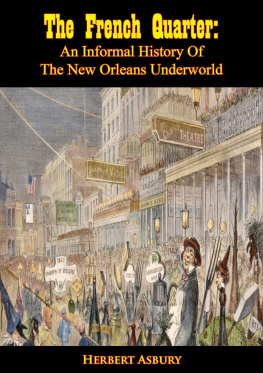
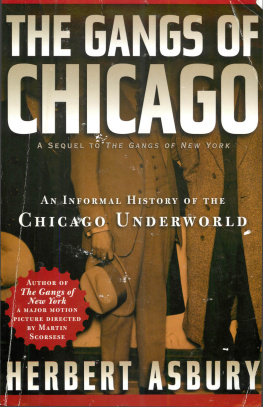
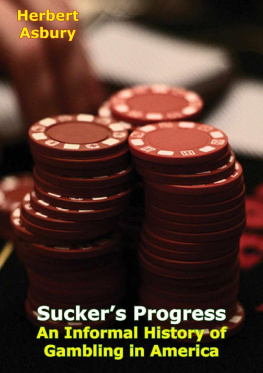
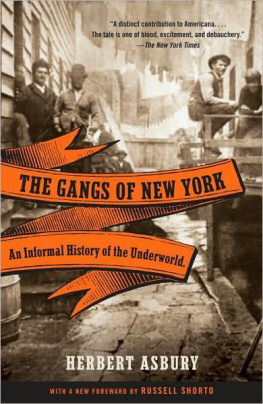
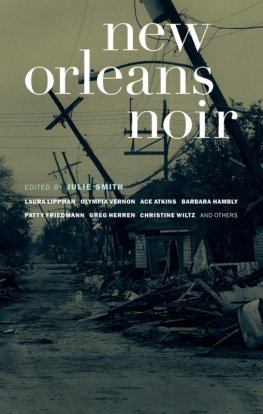
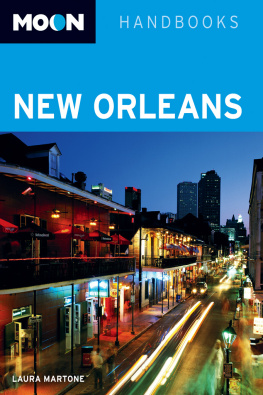
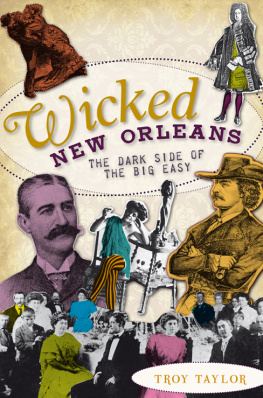

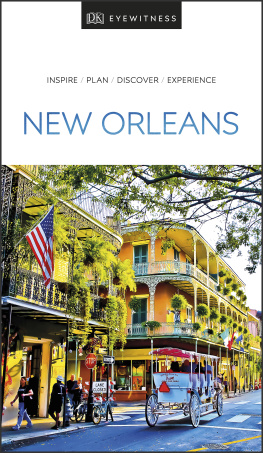
![Schwam - Frommers New Orleans [2011]](/uploads/posts/book/250009/thumbs/schwam-frommer-s-new-orleans-2011.jpg)
